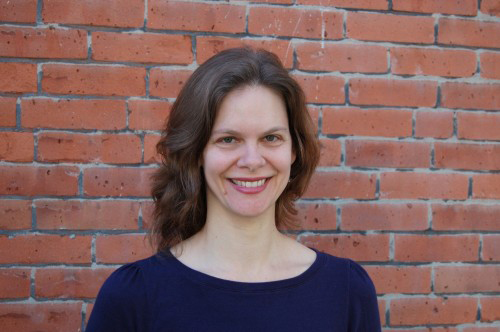
Courtesy of Beverly Gage
History professor Beverly Gage ’94 will serve as the next director of the Brady-Johnson Program in Grand Strategy, University President Peter Salovey announced in a communitywide email Wednesday afternoon.
Effective July 1, Gage will replace outgoing director Elizabeth Bradley GRD ’96, who is leaving to become the next president of Vassar College. In his email, Salovey said he will recommend Gage’s appointment to the endowed professorship when the Yale Corporation meets later in this spring. Gage has been affiliated with the Grand Strategy program for several years, according to Salovey.
Students and faculty interviewed told the News that they think Gage’s expertise in social change and domestic policy will complement the program’s emphasis on global leadership.
“I see [Gage] as someone who is really grounded in the history that framed Grand Strategy from the beginning, but also brings to it a lot of fresh ideas and has a historian’s respect for continuity and a real sense of the Yale community that she brings to this program,” said Molly Worthen ’03 GRD ’11, a history professor at the University of North Carolina, Chapel Hill, who has known Gage for years and wrote a 2005 book about the Grand Strategy program and its co-founder Charles Hill.
Gage, a historian of 20th-century American politics and society, previously served as the director of undergraduate studies of the History Department and the inaugural chair of the Faculty of Arts and Sciences Senate. She received the Sarai Ribicoff ’79 Prize for teaching excellence in Yale College in 2009 and recently served on the Committee to Establish Principles on Renaming, Salovey’s email noted.
Bradley said she was not involved in the selection of her successor, but “could not be happier” with the decision. She added that the two have worked closely together throughout her time as director, describing Gage as an educator who brings a classroom to life and who cares deeply about the role of history in current grand strategic approaches to domestic and international challenges.
“The program has always reflected a collaboration of several faculty with differing views in the classroom, from which students learn, and professor Gage has been an active part of that collaboration,” Bradley said. “I expect she will evolve the program in creative ways that are responsive to contemporary global pressing challenges and emerging needs of students.”
Gage said she is particularly excited to lead the program at this moment in American history, as the program sets academics and other tools of scholarship into conversation with contemporary political problems.
According to Worthen, Gage’s knowledge of the history of social movements and social change adds an interesting dimension to the program, which focuses mostly on topics of leadership and diplomacy. Gage said she is a longtime proponent of the Grand Strategy canon and course structure, and she hopes to enhance them with more discussions on current political questions.
“I think it’s really going to be a process of broadening Grand Strategy and making it a little more flexible for the kinds of questions people are asking, many of which have to do with domestic politics and domestic institutions and how it is that American power can best be used at home as well as in other parts of the world,” Gage said.
In interviews with the News, current and former Grand Strategy students expressed excitement over Gage’s appointment.
Josh Hochman ’18 said he hopes and expects that Gage will preserve the program’s focus on international relations while bringing a renewed energy to domestic political movements. He added as successful diplomacy requires strategy, so too does effective social change, which Gage has studied in depth.
“I think professor Gage is a perfect choice for the program — someone who can both broaden and deepen our understanding of what ‘grand strategy’ means and how it informs our understanding of the world,” said program alumnus Noah Remnick ’15. “She has the rare gift of making history feel as urgent as anything we study. The department is lucky to have her.”
In his email, Salovey thanked Bradley — also the head of Branford College, a professor of public health and faculty director of the Global Health Leadership Institute — for her work in the interdisciplinary Grand Strategy program. He also expressed gratitude to history professor John Gaddis, who cofounded the program and served as its inaugural director for six years.
“The program is in the best of hands,” Gaddis told the News. “I couldn’t be more pleased.”
This article has been updated to reflect the version that ran in print on Feb. 23.







